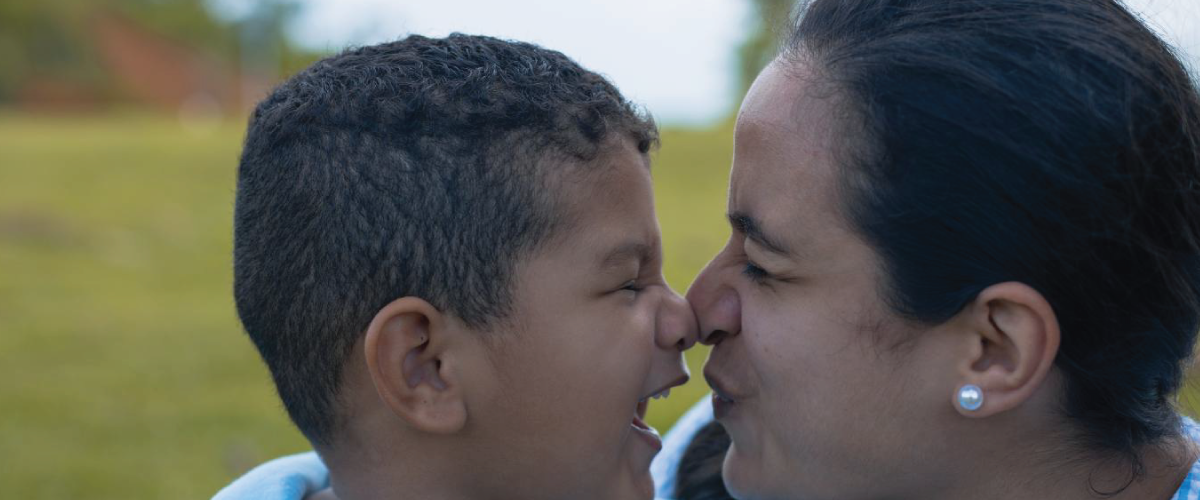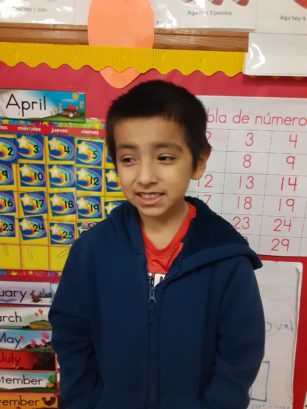Autism spectrum disorder is a condition related to brain development that impacts how a person perceives and socializes with others, causing problems in social interaction and communication. The disorder also includes limited and repetitive patterns of behavior. The term “spectrum” in autism spectrum disorder refers to the wide range of symptoms and severity.
Early, Intensive Treatment Can Significantly Help Children with Autism

Autism spectrum disorder begins in early childhood and eventually causes problems functioning in society — socially, in school, and at work, for example. Often, children show symptoms of autism within the first year. A small number of children appear to develop normally in the first year and then go through a period of regression between 18 and 24 months (about two years) of age when they develop autism symptoms.
Although there is no cure for autism spectrum disorder, intensive early treatment can make a significant difference in the lives of many children. This is a key focus of AVANCE.
The organization ensures that parents and children receive the information needed to make the necessary adjustments as smoothly as possible, providing valuable resources for parents dealing with a child’s autism diagnosis.
“Each family’s reaction to the diagnosis will differ depending on many factors. Parents and family members may feel shocked, deny the diagnosis, mourn lost hope, and experience anger. It’s important to be aware of these emotions and express them in healthy ways,” AVANCE’s Intervention Support Specialist, Elizabeth Diaz, said.

Common factors where parents may deny their child’s autism diagnosis are:
- Social Stigma: Parents may worry about the social stigma associated with having a child with special needs. They fear negative perceptions from neighbors and friends, which can lead to hiding the child’s condition.
- Lack of Awareness: Some parents may not be fully informed about the autism spectrum and its wide range of manifestations. This can result in mislabeling the child’s behavior as a “slow learner” or “poor behavior” rather than recognizing autism signs.
- Hope: Holding onto hope, parents may seek multiple medical opinions, focusing on the least concerning advice. They often wait for a miraculous improvement, believing the child will outgrow the symptoms.
- Denial as a Defense Mechanism: Denial can be a natural defense mechanism for parents struggling to accept the reality of the diagnosis. It’s a way to cope with the overwhelming emotions and responsibilities that come with raising a child with autism.
Roman Segovia is one of the many children served by AVANCE who is on the autism spectrum. His parents learned about his diagnosis during the routine evaluations conducted for incoming children. Since then, Roman has received specialized instruction, significantly contributing to his consistent development. What used to be a challenge in the past is now a work in progress. His proficiency in English and Spanish, as well as his critical thinking skills, have improved significantly. This progress wouldn’t have been possible without the proper diagnosis and early detection.
Roman’s parents also noticed a positive change in his personality. He now speaks more and communicates better with the family. Roman’s mother, Guadalupe, explained, “He used to be very shy and quiet, and now he is behaving more age-appropriately.”
Despite still learning about his diagnosis, the family is confident that their child will be well-prepared for kindergarten, and they have become effective advocates for their child’s needs. Roman has thrived in the inclusive classroom environment and demonstrates daily positive growth, thanks to AVANCE providing a solid foundation for his future.
What AVANCE offers to children with special needs
- Early Identification: The program emphasizes the importance of early identification of autism, which can lead to more effective interventions.
- Early Intervention: A team of experienced consultants working on identifying and addressing developmental delays in children 0-5.
- Support Strategies: Teachers have strategies to support autistic children, such as structured routines and visual cue cards, which can also be shared with parents.
- Individualized Plans: The program uses Individualized Family Service Plans (IFSPs) and Individualized Education Programs (IEPs) to cater to each child’s specific needs, ensuring parents have a clear plan for their child’s education and development. We assist parents in finding support services in the community or local education agencies.
- Inclusion and Individualization: Head Start promotes inclusive environments and individualized teaching, which can help children with autism access, take part, and thrive in early learning settings. Focus on the first five years of life: These are crucial for the children’s development to open neural connections that they will need for the rest of their academic life.
This website is supported by the Grant Numbers Early Head Start/Head Start 06CH011541, 06HP000564, 06HP000534, FRAMEWorks: 90ZB0030 and Ready for Life: 90ZD0003 from the Office of Head Start within the Administration for Children and Families, a division of the U.S. Department of Health and Human Services. Neither the Administration for Children and Families nor any of its components operate, control, are responsible for, or necessarily endorse this website (including, without limitation, its content, technical infrastructure, and policies, and any services or tools provided). The opinions, findings, conclusions, and recommendations expressed are those of AVANCE-Houston, Inc. and do not necessarily reflect the views of the Administration for Children and Families and the Office of Head Start.
Copyright © 1988-2020 AVANCE-Houston. All rights Reserved.
4281 Dacoma St, Houston, TX 77092 | (713) 812-0033











